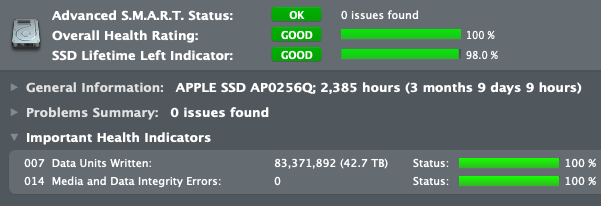There's a lot more factors at play here but you need to look past the pitchforks over Apple not putting $10 of memory in a 200k product.
First of all, PC manufacturers are not going to follow this trend — it's an Apple specific issue, by their market size and higher price point and other factors. The moment Dell does this, HP takes their market share. And so on. Apple had non-upgradeable memory and storage for a decade now and no one followed through. The opposite happened, Dell invented an entirely new standard for upgradable memory that's now been accepted by JEDEC as an industry standard (CAMM).
Apple becomes hyper focussed on issues that effect their higher end customer base more than any other company. The iPhone never had upgradeable storage or removable batteries — do you honestly think, for the one of the richest companies in the world, that this was a cost saving decision? I believe it was a security related decision. Same with non upgradeable storage and memory in their computers.
Twenty years ago, people were super cooling ram modules on a laptop that was in sleep mode, transplanting them into another computer and were able to access the data inside those modules. And these weren't elite hackers or three letter government agencies, they were university students. You can only assume this capability still exists with more refined techniques but just isn't talked about. Like it or not, but non-upgradeable memory completely breaks this attack vector.
It's a similar story with storage, by removing the storage controller and interfacing directly with the nand chips, there's no way to access the encrypted data on there since the decryption happens on the SoC. People have tried and failed, swapping out storage modules in Apple Silicon macs.
Now you may scoff and laugh at this theory but we aren't the target audience for these computers. We are just people who happen to be able to afford it so Apple sells it to us. These are the same computers used by world leaders, industry professionals, diplomats — and those people buy a lot more of these computers than any software developer in India (maybe this is changing).
I believe there's also another reason for custom SKU's for anything over the 8GB minimum, it forces the product to be shipped directly from Apple to you — taking out any middleman and middleman related interceptions/attacks.
I have a story about this:
Some years ago, I witnessed an incident where a colleague of mine purchased a used Macbook Pro from Amazon US to have shipped to a country east of India. Tracking showed that the laptop spent two weeks "in transit" stuck at a country whose name I won't mention. Once the laptop arrived, this colleague was not allowed to keep the laptop or use the laptop because it was no longer considered secure by our organization's security guidelines — it had to be disposed of. Several months later, we read news about EFI rootkits that were specifically targeting Apple computers and the laptop he had purchased were among the affected models. Up until then, no one even knew that EFI rootkit was a thing.
Non-removable storage makes this much more difficult to execute. Encrypted storage without a controller or protocol basically makes it practically impossible for hardware to become an interception/attack vector.
It's easy to take things at face value and assume Apple is being intentionally malicious or incompetent or greedy or short-sighted — but for a company of that size and that much money, that explanation does not make sense in any way. We just have to accept that these decisions do not make sense to us because we who want these features are not the target demographic, we are just people who are able to afford it.
From this perspective, it becomes clear that Apple prioritizes the security needs of a specific customer base over everyone else. It's probably why we'll never see upgradeable storage or memory on any Apple computer ever — we might be able to add additional storage in some cases like the Mac Pro or perhaps even a future Macbook Pro, but the in-built storage will not be replaceable, even if they become modular.
The former sits at about 6% SSD used despite really heavy use over a reasonably long period now- so i think I can comfortably say that the whole SSDgate hype was largely FUD.
Thanks for this, I thought I wasn't pushing my M1 hard enough — but if 6% after 3 years on an 8GB is what you're seeing then my use case with a 16GB at 2% after two years probably means I'm punishing this machine.
I really do want more compute though, hopefully in a year or so I'll upgrade. My M1 purchase was done after a year after release and most of my computing purchases have been similarly staggered, I never purchase a first gen product and I always buy either a year old product or last-gen. The last time I bought the latest and greatest was with a 500MHz Pentium III in 1999 and I never made that mistake ever again (we had 1GHz processors eight months later).





